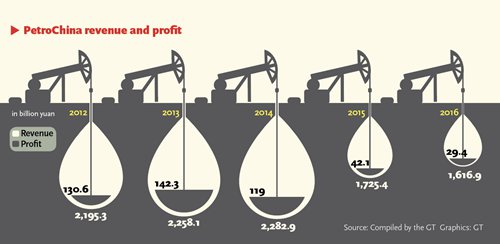Belt and Road
Your Present Location: PROGRAMS> Belt and RoadNew oil route from Myanmar in line with B&R initiative, offers improved security to nation

Graphics: GT
An agreement that`s just been signed for a China-Myanmar pipeline project is a step forward in building up major energy corridors that will help ease China`s oil import dependence on the Strait of Malacca, experts said on Tuesday.
China National Petroleum Corp (CNPC), the nation`s major oil and gas producer and supplier, and Myanmar`s Ambassador to China signed an agreement on transportation projects concerning a crude oil pipeline on Monday, according to a statement on the website of CNPC on Tuesday.
The pipeline has actually started to operate in Madae Island, the starting point of the project, the statement noted.
"It shows that the China-Myanmar pipeline project has officially kicked off, which is capable of shipping crude oil from western Myanmar to Kunming, capital of [Southwest China`s] Yunnan Province," Lin Boqiang, director of the China Center for Energy Economics Research at Xiamen University, told the Global Times on Tuesday.
Launched in June 2010, the project has 771 kilometers in Myanmar and about 1,600 kilometers in China, according to the CNPC`s statement. The pipeline is designed to carry 22 million tons of crude oil annually.
On Monday evening, an oil tanker unloaded 140,000 tons of crude oil shipped from Azerbaijan. The project, which has been in the works for years, will become a new driver of economic growth in both countries, the statement noted.
The Myanmar project will also offer new channels for China to import oil, which will further ensure the nation`s energy security, domestic financial news site cs.com.cn reported on Tuesday.
The project will help strengthen China`s position in South Asia, and ease the country`s dependence on the Strait of Malacca.
The project is jointly run by CNPC and Myanmar Oil and Gas Enterprise, which hold stakes of 50.9 percent and 49.1 percent, respectively, according to CNPC.
About 30 percent of China`s oil imports pass through the Strait of Malacca, so exploring new routes reduce potential risks, Lin noted.
China imported 381 million tons of crude oil in 2016, up 13.6 percent on a year-on-year basis, according to a post on the government`s website in January.
Although the Myanmar project is expected to become a new driver of economic growth of China`s southwestern region, it is likely to be exposed to geopolitical factors among China, India and even the US as armed conflicts persist in the border area of Myanmar, Zhou Rong, a senior research fellow at the Chongyang Institute for Financial Studies at Renmin University of China, told the Global Times on Tuesday.
"Those factors will have an impact on further development of the project," he said, while noting that the project will also strengthen the connectivity among South Asian countries along the "One Belt, One Road" initiative, although India is likely to be resistant to the initiative.
Challenges remain in further improving the infrastructure related to the pipeline, particularly in areas linking Myanmar and China, Zhou noted. "Also, whether the port in Madae Island can meet the shipping and storage requirements of large-capacity oil tankers is an open question."
However, Myanmar`s oil imports are surging to fuel a fast-growing economy and rebuild rotting infrastructure, Reuters reported in January. That report noted that shipping data in Thomson Reuters Eikon showed that about 20 small tankers with a combined capacity of about 220,000 deadweight tons are currently shipping refined products into Myanmar, virtually all from Singapore. That`s about twice as many vessels as were on that route around a year earlier.
The new progress in the China-Myanmar pipeline project will also benefit provinces neighboring Yunnan, Lin noted.
A natural gas pipeline, which is also part of the China-Myanmar pipeline project, still needs time to be fully established, Lin added.
Zhou Rong is a senior fellow of Chongyang Institute for Financial Studies at Renmin University of China.
Key Words: China; Myanmar; Belt and Road























































































 京公网安备 11010802037854号
京公网安备 11010802037854号





